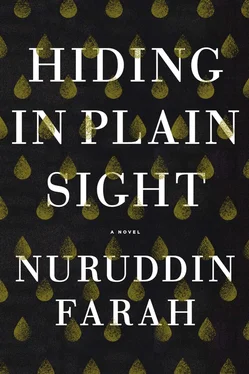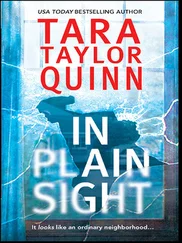The taxi driver, a gentleman of rare breeding and charm, led her to his car and they sat together until she came to her senses. Then he drove her home, left his car parked illegally in the street, helped her up the stairway with her luggage, cameras and all, and refused to accept the fare.
On the drive, Bella used her phone to glean further details from the Internet. The attack was remarkable for its ruthlessness, which had attracted intense international attention. The body parts of the dead were found strewn about the outbuildings, so charred and mangled as to be unidentifiable. Aar’s head was found far from where the rest of his body fell, although that was according to some of the unreliable Somali websites, which are given to exaggeration and releasing unverified information. Those body parts that were identifiably Somali were buried in a mass grave, and those of a recognizably paler shade were collected and put in containers to be catalogued later before being passed on to their next of kin.
Now, at the sight of her beloved friend and neighbor, who has been listening for her return, Bella is again undone. Marcella holds her until her sobbing ceases, then they retreat into Bella’s apartment, still clinging tightly to each other.
Marcella makes her sit. “I’ll make you tea with sugar, the way Somalis like it,” Marcella says. Bella stares back at her, as if she doesn’t understand the language or can’t comprehend why anyone would have sugar in her tea. “Please,” she says. Too weak to sit up straight and too jet-lagged to keep her eyes open, too exhausted to sleep and much too disoriented to take in all that has happened, Bella is at the point of losing control over her bodily movements.
Marcella sits down opposite her. The old woman has known Bella literally from birth. She remembers the day in 1981 when Hurdo came to have her second child at Mogadiscio’s Digfer Hospital. It was a Muslim holiday and the hospital was short-staffed; Marcella, as head of obstetrics, was putting in a long shift, and it fell to her to perform the delivery. My lucky day, Hurdo always said. Hurdo and her husband, Digaaleh, were colleagues of Marcella’s husband on the law faculty, and the two couples knew each other well. Hurdo was a much-adored professor of international law, having gained her higher degree from Bologna in the days when a large number of Somalis pursued their professional training in Italy.
There was an additional layer to the intimacy of Marcella’s connection with Bella, in that she was among the few who knew of Hurdo’s affair with Giorgio Fiori, a Dante scholar on the faculty of letters, and she suspected that Bella was Giorgio’s child even before it was confirmed. So she had a certain proprietary feeling about Bella from the beginning, which was rekindled years later, when Marcella and her husband — who had died recently of lymphoma, poor soul — took on the role of surrogate parents to Bella in Rome, helping her to find her apartment opposite their own and watching after it when photography assignments took her far and wide.
Lately, Marcella has been losing more and more of her recall, fading like a cloth losing the brightness of its original dye. Now she is reaching for the memory of the last time she saw Aar, but it is earlier memories that surface. Aar was twelve years old when Bella was born. From the beginning, he had an older brother’s protectiveness and affection for her, buying her toys with his own pocket money and helping with her studies (she was bad at mathematics and science). He’d encouraged her interest in photography; in fact, he bought her first camera and sat for her as she began to master her art. One of Marcella’s great joys was to host brother and sister together, delighting in the way they comforted each other, holding hands and hugging at every opportunity. They had a deeper affection for each other than could exist between even the most intimate husband and wife, Marcella thinks. But still she can’t retrieve the memory of Aar’s last visit.
“When was Aar here last?” she asks.
But the question leads Bella to a dim hall lined with fogged mirrors, where she searches frenziedly for answers and, finding none, weeps some more. Marcella can’t think of anything to say that might help, and so she says only, “Let me make the tea.”
“Actually, I would prefer coffee,” says Bella.
“Black or with milk?”
“A latte if possible.”
Marcella knows how to work Bella’s espresso machine and goes about feeding the grinder with coffee beans, apologizing for the hideous noise. She regrets that since her husband’s death she hasn’t been looking after the young woman’s apartment as before. In the old days, she would often do the tidying herself or hire a Filipino woman to do it, services that Bella would insist on reimbursing with money and favors in return. Now Marcella notices the dishes in the sink; the books lying open, abandoned like orphans; the drawn curtains; the windows unopened for days on end so that the whole apartment emits a musty odor. This is not clean living, she thinks. In an effort to alleviate the dark mood, she parts the curtains to let in the daylight and opens the windows. She sets the coffee to brewing while she begins to clear away the clutter then interrupts herself to froth the milk and pour the latte into a large mug, worried that Bella might spill it in her state of discomposure.
“Here,” she says, handing it to Bella. “This will do you good.”
Bella receives the mug with both hands and murmurs her thanks. But she doesn’t take a sip, not yet; it is too hot. And when she does, she continues to look dazed, her eyes unfocused, her hands trembling as she lifts the mug to her lips and lowers it again, untasted.
Marcella has noticed that the red button of the message machine is blinking. She knows that one of the messages is her own condolence, left earlier in the day, when she was still at work and Bella had not yet returned. But there may be more. She debates whether she should bring the messages to Bella’s attention. After all, one or more may be from Aar, or from his colleagues. But Bella is staring ahead of her, looking at nothing, and Marcella decides not to mention it.
Bella looks up into Marcella’s eyes, finding comfort in their warmth and familiarity. Then, as if remembering something, she tries to stand but nearly loses her balance before she steadies herself with her hands and sits back down, narrowly missing spilling her latte, which she still has not tasted.
“What do you need done? I’ll do it. What?”
Apologetically, Bella says, “Could you please help bring in my camera cases? In my state, I left them outside, in the corridor.”
“Gladly, and you stay put.”
Marcella fetches the bags and asks if she should put them in the spare bedroom, which Bella rightly calls Aar’s room, as it is always ready to receive him — the bed made, clean towels in a neat stack, his pile of reading material (much of it novels bought at airports) at bedside, a spare pair of pajamas and hotel slippers, all of it arranged neatly as he liked things kept. Bella has never allowed anyone else to stay there. So Marcella’s question initially strikes her as almost insensitive, but after a moment of thought, she says, “Yes, in the guest room, please.”
Marcella knows all about homage to the dead. She has only recently finished going through her late husband’s things, getting rid of all but a handful that she left where he last placed them, cautioning the cleaning lady not to shift them. It is the prerogative of survivors to honor their dead and salute them the best way they can, she thinks.
When Marcella has finished moving the camera cases, Bella says, “Come and sit with me, please.” Marcella obliges, settling at the bottom end of the couch where Bella has indicated she should. Soon enough, though, an uneasy silence descends, and with it, a gnawing feeling of despair. Marcella scans the far wall of the living room, which is lined with Bella’s photographs, some of which have made her into one of the fashion industry’s most sought-after photographers. Even so, Marcella’s favorites are the family portraits, of Aar alone and with Valerie and his children at different ages. Bella has the true artist’s knack for showing the ugliness inside those she detests, Marcella thinks, as can be discerned in the photographs she took of Valerie.
Читать дальше












